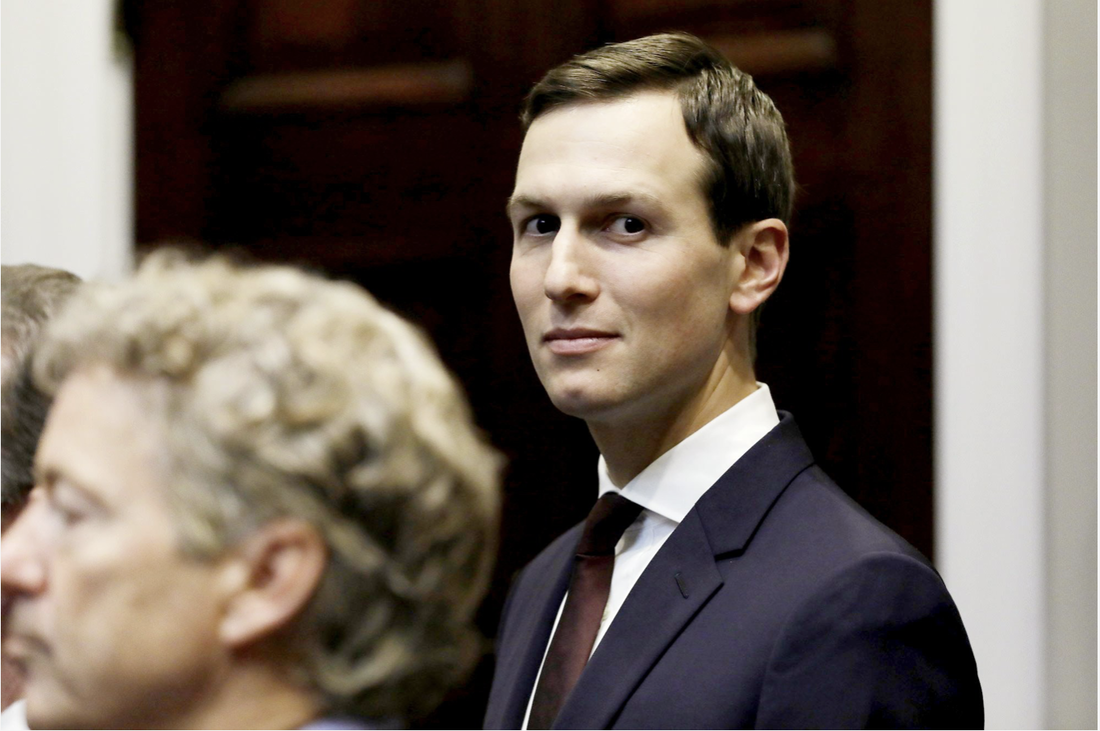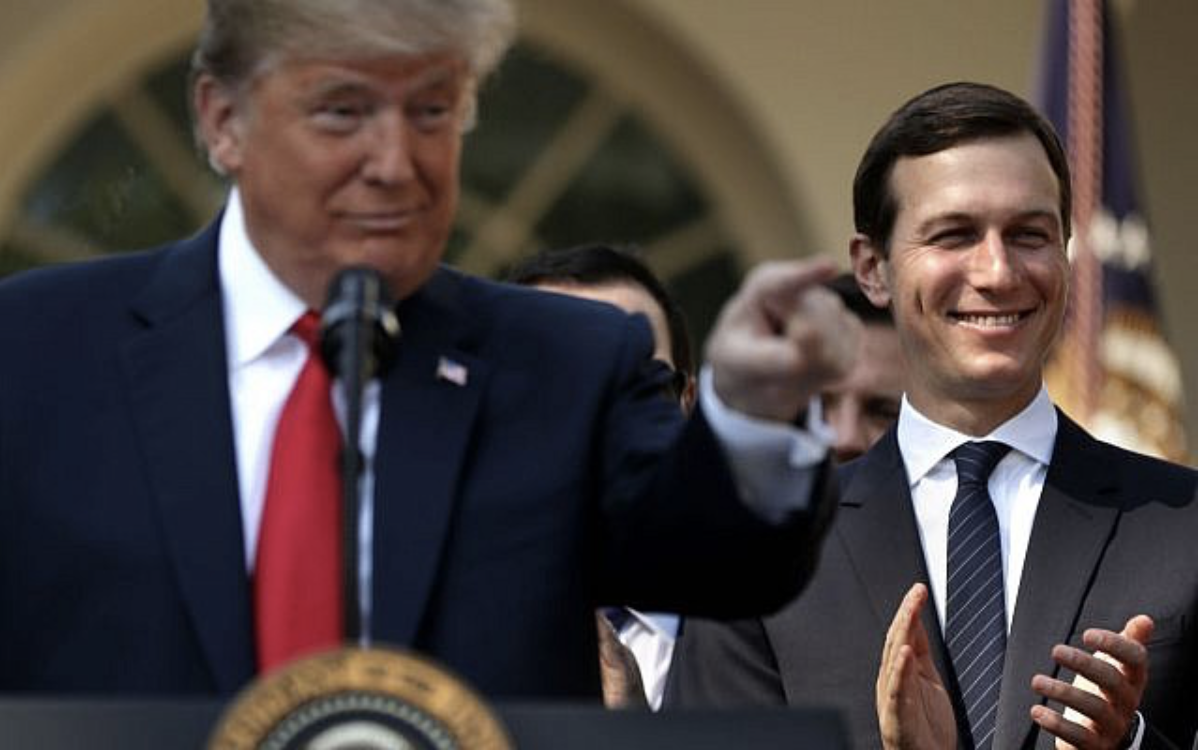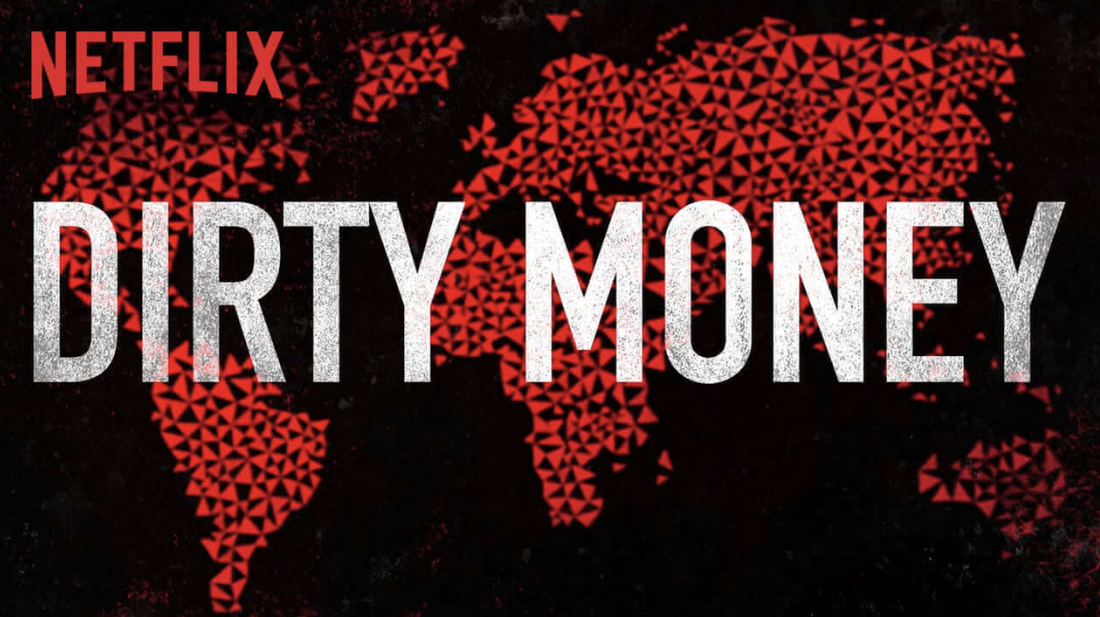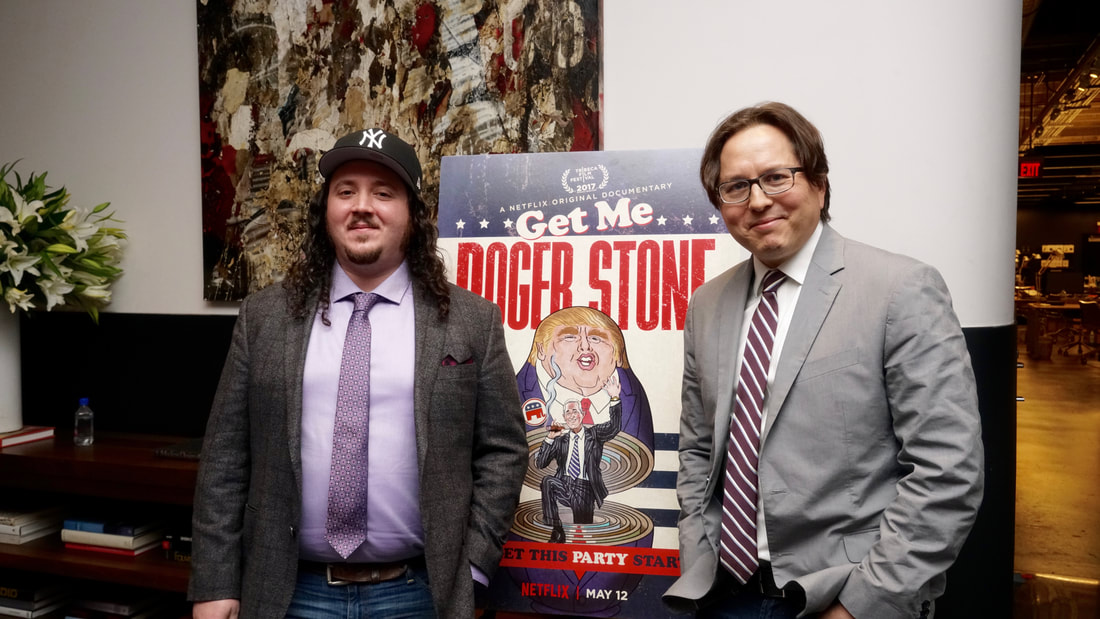|
Film by Dan DiMauro and Morgan Pehme is part of Dirty Money series from Alex Gibney Jared Kushner's latest "achievement" as senior White House adviser is having co-written the much-maligned Oval Office address President Trump delivered last Wednesday on the Coronavirus pandemic, an error-filled speech "widely viewed as a disaster." Perhaps the failure of the speech (it led to the steepest one-day drop by percentage in the Dow Jones Industrial Average since 1987, until Monday's even steeper decline) had something to do with the lack of policy expertise of the co-author. "Mr. Kushner hasn’t attended a single [Coronavirus] task force meeting, according to one official who has attended each meeting," the Wall Street Journal reported following Wednesday's address. "Many of the officials who have been working on the issue for weeks said they were cut out or ignored during the speech writing." Expecting sound judgment from Jared Kushner may be asking too much, to judge from a new documentary that delves into his business career. Slumlord Millionaire, directed by Dan DiMauro and Morgan Pehme, explores Kushner's real estate dealmaking and one-time attempt to build a media empire, and finds little for him to boast about. "The president has entrusted so much to his son in law," Pehme notes. "But if you look at Jared's record as a businessman, it's uneven at best... The track record of success isn't really even there to make the argument that his business acumen qualifies him for this extraordinary position in government." Slumlord Millionaire, now streaming on Netflix, is part of the newly-released second season of the documentary series Dirty Money, executive produced by Alex Gibney. DiMauro and Pehme tell me they pitched Gibney on devoting an episode of the series to the 39-year-old Kushner, who has been tasked by Trump with everything from sentencing reform to forging Middle East peace. "We thought it might be valuable to get insight into who Jared is as a person by studying how he conducted himself as a businessman at the head of his family's business," DiMauro says, "and maybe by studying that we could understand more what he's doing at the policy-making level because by all accounts he's the second most powerful person in the White House after the president." Kushner took over the family real estate business at age 25 after his father, Charles, was convicted of several crimes, including tax evasion. Jared's signature move was to buy an aging office building in Manhattan at 666 Fifth Avenue, borrowing heavily to finance the $1.8 billion purchase price. That deal went through in 2007 at the height of the real estate bubble; a year later came the 2008 financial meltdown that produced the Great Recession. "A lot of people that we spoke to for this documentary point to 666 as such a disastrous deal that it really taints anything positive Jared [did] when he took control of his family's real estate empire," DiMauro notes. "[He] leveraged his family's entire business to purchase it and then the market crashed. It really put them in dire financial straits and then their loans were coming due just when Trump was being inaugurated." Of greater concern for the American people than just a bad real estate deal is how the Kushner Companies went about seeking financial backers to avoid defaulting on its 666 loans. Slumlord Millionaire examines that question in depth. "When Jared was out trying to find financing for the building he was speaking with a Russian-owned bank that's very close to the Russian government, [and a] Chinese investment [company] that's very close to the Communist Chinese government," DiMauro comments. "We don't know for sure if these governments were looking to invest into Kushner's company to curry favor with the United States government, but what we do know is that we shouldn't have to be asking these serious questions about these conflicts of interest." Ultimately, the Kushner Companies got money from another foreign source. "We know that 666 was bailed out by Brookfield Properties which the majority stakeholder is the Qatari Sovereign Weath Fund," DiMauro states. "So a lot of eyebrows are raised there." The Kushner Companies real estate holdings extend to residential property, which is where the title of the documentary comes into play. The filmmakers shot footage in some of the apartment buildings owned by the Kushner Companies in New York, discovering one unit where a waterfall cascaded from a leak in the ceiling. Other tenants claimed they were subjected to constant construction noise, making their dwellings almost uninhabitable. “It is abundantly clear that Kushner Companies made the lives of its tenants a living hell.” Aaron Carr, founder of the pro-tenants group Housing Rights Initiative, observes in the documentary. He describes the Kushner Companies as "a tier 1 predator.” Disrupting the lives of tenants in rent-controlled units was part of a master plan, the film alleges. "What we found was that Kushner Companies was a business that was built upon maximizing profit," Pehme asserts. "Kushner Companies' model was to buy rent-stabilized buildings, then to use construction harassment and these other tactics to make living in these buildings unbearable, to push the tenants to want to move out on their own so the Kushner Companies could flip these buildings to market rate and sell them at a significant profit." The picture in Baltimore, Maryland, where the Kushner Companies owns many down market apartment buildings, is no better than in New York, but for different reasons, according to the filmmakers. They spoke with Baltimore tenants who say they were systematically subjected to late fees and other costs, in a practice known in the industry as "churning." "In areas like Baltimore where there isn't such a great demand for housing the whole business model was to squeeze every last dollars out of their tenants," Pehme explains. "And the model there was spend minimally on the upkeep of these building -- and we saw them; a number of these apartments are in really shoddy condition. The repairs are either not being done or are being done poorly -- and at same time to hit the tenants with this snowballing 'churning' procession of fees. So as soon as your rent is due there is no grace period. You get hit with a late fee and then you get assessed something called a court fee which sounds like an official fine or fee but it's actually the Kushner Companies charging their tenants to bring legal proceedings, oftentimes eviction proceedings, against them, and to use these fees again and again to pull every last cent out of their tenants. These tactics are justified by Kushner Companies as doing their fiduciary obligation to their investors." The film notes, "Jared Kushner declined to be interviewed for this documentary." Nonfictionfilm.com reached out to the Kushner Companies for comment on Slumlord Millionaire several days ago, but as of publication we have not received a response. Related: |
AuthorMatthew Carey is a documentary filmmaker and journalist. His work has appeared on Deadline.com, CNN, CNN.com, TheWrap.com, NBCNews.com and in Documentary magazine. |
- Home
- News
- Videos
-
Galleries
- 2019 Tribeca Film Festival
- Full Frame Documentary Film Festival
- 2019 SXSW Film Festival
- SXSW 2018 Gallery
- 2019 Sundance Film Festival
- Outfest 2018 Photo Gallery
- Outfest 2017
- Sundance 2018 Photos
- 2017 LA Film Festival
- 2017 Cannes Film Festival
- Tribeca Film Festival 2017
- SXSW 2017 Gallery
- 2017 Berlin Film Festival
- Sundance 2017 Gallery
- 2016 Los Angeles Film Festival
- Cannes Film Festival 2016
- SXSW 2016 Gallery
- Berlinale 2016 Gallery
- Sundance 2016 Gallery
- Filmmaker Gallery
- About
- Contact
Proudly powered by Weebly
- Home
- News
- Videos
-
Galleries
- 2019 Tribeca Film Festival
- Full Frame Documentary Film Festival
- 2019 SXSW Film Festival
- SXSW 2018 Gallery
- 2019 Sundance Film Festival
- Outfest 2018 Photo Gallery
- Outfest 2017
- Sundance 2018 Photos
- 2017 LA Film Festival
- 2017 Cannes Film Festival
- Tribeca Film Festival 2017
- SXSW 2017 Gallery
- 2017 Berlin Film Festival
- Sundance 2017 Gallery
- 2016 Los Angeles Film Festival
- Cannes Film Festival 2016
- SXSW 2016 Gallery
- Berlinale 2016 Gallery
- Sundance 2016 Gallery
- Filmmaker Gallery
- About
- Contact








 RSS Feed
RSS Feed